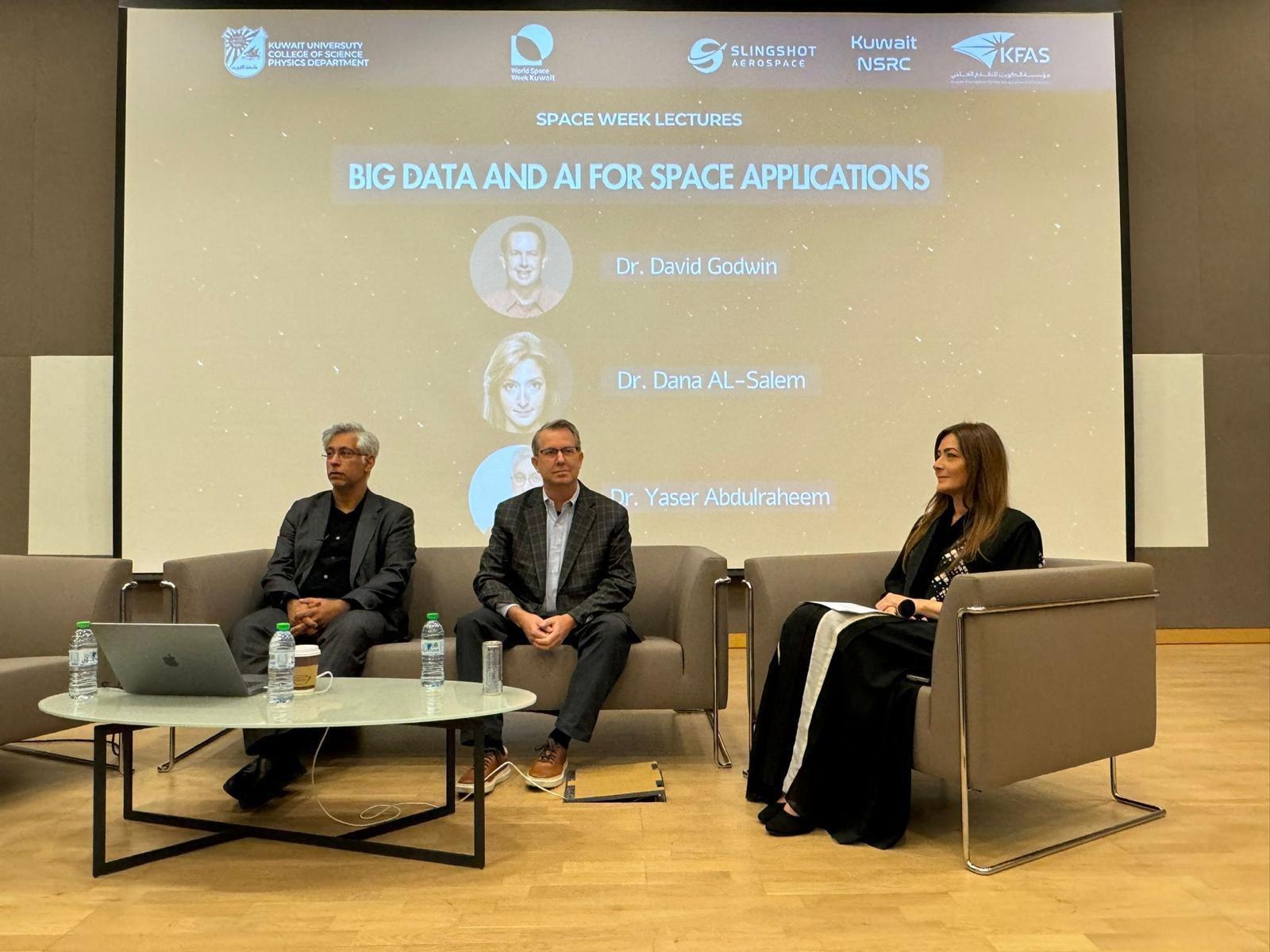
In Line with Kuwait University's Commitment to Enhancing Its Presence in the Global Scientific Landscape
The College of Science at Kuwait University Organizes the World Space Week 2025 Events
As part of Kuwait University's ongoing efforts to strengthen its standing in the global scientific arena, the College of Science celebrated the launch of the World Space Week 2025 activities. This initiative aims to enrich public awareness of the significance of space sciences and future space exploration. The event was organized by the Department of Physics at the College of Science – Kuwait University, in collaboration with the Kuwait Foundation for the Advancement of Sciences (KFAS), under the umbrella of the Kuwait National Space Research Center—one of KFAS's affiliated research centers—with the participation of the Physics Club.
The program featured a series of lectures and panel discussions focusing on key topics, including the importance of space exploration, the role of artificial intelligence and big data in advancing the space sector, the challenges facing humans in space, and space weather. The discussions also highlighted Kuwait’s position on the global space map.
The events were presented by a distinguished group of experts in space-related fields from academic, governmental, and private sectors, including Mr. David Godwin, Chief Executive Officer of Slingshot Aerospace, and faculty members from Kuwait University: Dr. Yasser Abdulrahim, Dr. Fahad Zaman, and Dr. Naser Burahma. The panel discussion was moderated by Ms. Dana Al-Salem, a Kuwaiti speaker and technology investor.
In his lecture titled "Humans in Space", Dr. Fahad Zaman reviewed the journey of humankind into space since its inception, addressing the stages of human development in this field—from the first orbital missions to the establishment of long-term space stations—and the challenges faced by astronauts in adapting and surviving in a zero-gravity environment. Dr. Zaman also explored the short- and long-term implications of human spaceflight on physical, psychological, and technical levels, concluding with the major challenges accompanying humanity's ambition to reach Mars.
In his lecture titled "Space Weather", Dr. Naser Burahmah discussed the impact of solar phenomena on Earth and associated modern technologies. He explained that solar activity can cause disturbances in Earth’s magnetic field, which in turn may affect satellites, navigation and communication systems, and power grids. Dr. Burahmah also presented a historical overview of solar activity and some of the most significant solar storms recorded, highlighting the role of the Muon Observatory at the College of Science – Kuwait University in monitoring cosmic particles and supporting magnetic storm forecasting. He concluded his lecture by emphasizing the importance of studying space weather as a crucial factor for ensuring the safety of future space missions and protecting technological infrastructure on Earth.


 Colored
Colored Grayscale
Grayscale

